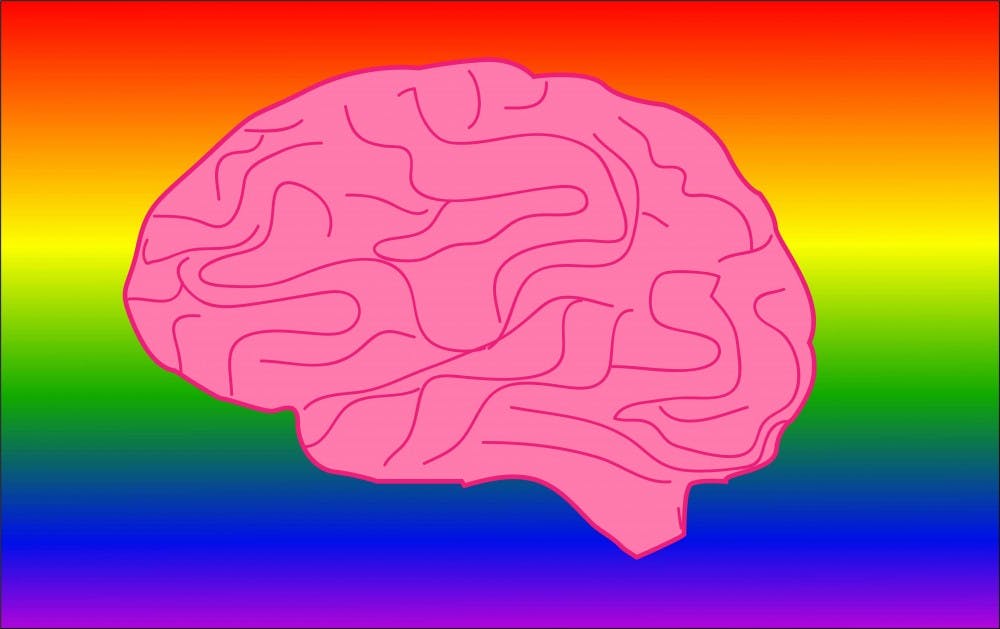Nov. 13-20 is Trans Awareness Week at ASU, and it comes as the scientific community is considering ways to improve LGBT+ representation in STEM fields.
The National Science Foundation says it is looking into asking questions about LGBT+ identity in the survey that it sends to new recipients of research doctorates.
If the NSF goes ahead with this plan, it could address concerns about how accepting the STEM community is of LGBT+ scientists. A 2014 study in the Journal of Women and Minorities in Science and Engineering found that around 70 percent of openly LGBT+ professionals felt uncomfortable and experienced discrimination in STEM fields.
Lois Sayrs, a senior clinical research scientist with Phoenix Children’s Hospital and assistant professor at the UA College of Medicine, said that in the beginning of her career, she knew which of her coworkers identified as gay or lesbian, but not many of them were out to the public, specifically around the workplace.
Sayrs also said she felt that transgender representation in professional science research was especially low.
“At the beginning, I can’t say I saw any trans women, but they might just not have been out,” Sayrs said.
Sayrs said that LGBT+ individuals may not want to answer the survey truthfully because they are not out at work, but she added that at UA, the impression she receives from her personal interactions with students is that younger individuals feel more confident to talk openly about their LGBT+ identity.
Although research on transgender STEM professionals is increasing, more work is needed before a comprehensive understanding is reached regarding the experience for trans people in STEM.
ASU researcher and Learning, Entering, Advising and Producing scholarship program manager, Katelyn Cooper, explained that in her research focusing on LGBT+ students in science, she’s noticed that the literature was lacking some specific information relating to LGBT+ identities.
“There has been some research about the experience of LGBTQ+ people in science, recognizing that it can be a hostile and chilly environment for LGBTQ+ people in particular," Cooper said. "But what was not available was how are LGBTQ+ students experiencing college level science classrooms?”
Cooper’s study found that there were some positive and negative effects of being openly LGBT+ in the classroom, and this kind of study could be paired with the future data from the surveys to inform whether this has an impact in career trajectory.
This NSF survey could be a big step for all LGBT+ identifying individuals, but it tends to couple gender identity with sexual orientation, which could negatively impact progress for trans individuals.
Cammy Bellis, an education and training specialist at UA’s College of Medicine, explained that it's important to separate the experience of transgender identity from the rest of the LGBT+ community.
“For the last about ten years, the research on trans youth has been exploding," Bellis said. "So thankfully, we now have that to point to."
Bellis said that, in the last decade, researchers have distinguished these aspects of identity as separate, and research has grown from there.
“There’s been research for quite some time on LGBT youth, but that clumped together sexual orientation and gender identity,” Bellis said.
Bellis said that with youth, parents and medical professionals tend to act as gatekeepers for youth gender identify, and that increasing trans representation in STEM, particularly medicine, might put trans people in the "gatekeeping" positions.
Understanding how many transgender individuals study and work in STEM can help researchers understand if the broader culture of STEM degree paths and workplaces are causing diminished representation of transgender people.
Correction: A previous version of this story incorrectly implied that the National Science Foundation had already decided to ask questions about LGBT+ identity in its Survey of Earned Doctorates. This story has been updated to reflect that the NSF is only looking into this possibility.
Reach the reporter at gmlieber@asu.edu or follow @G_Mira_ on Twitter.
Like The State Press on Facebook and follow @statepress on Twitter.




